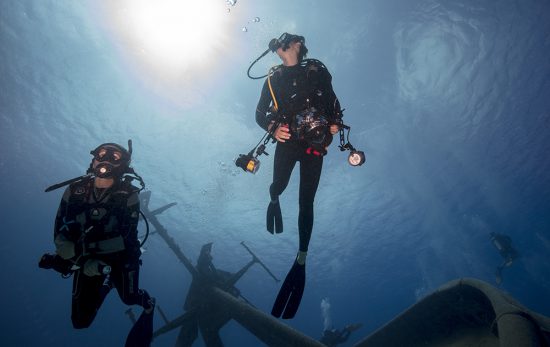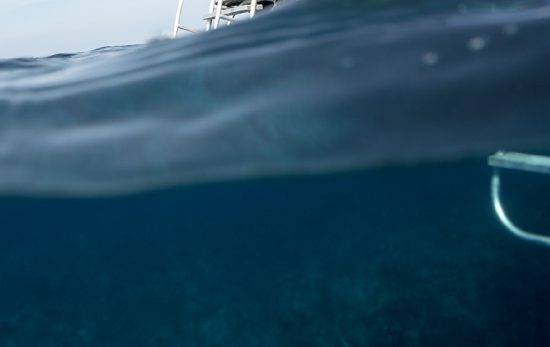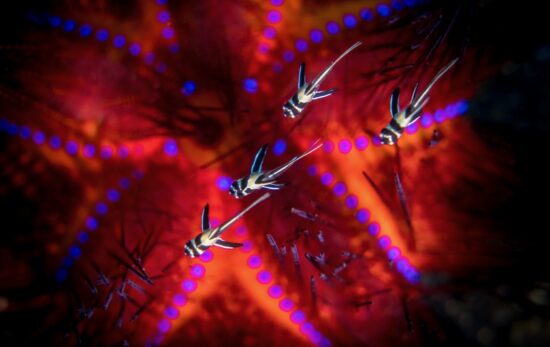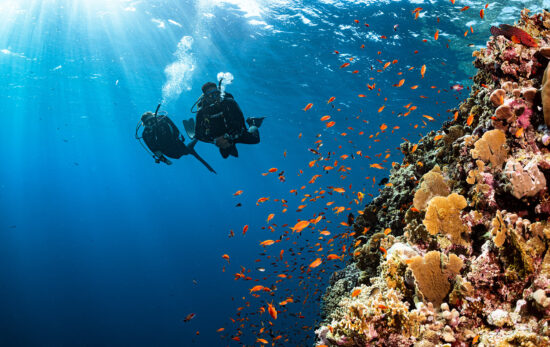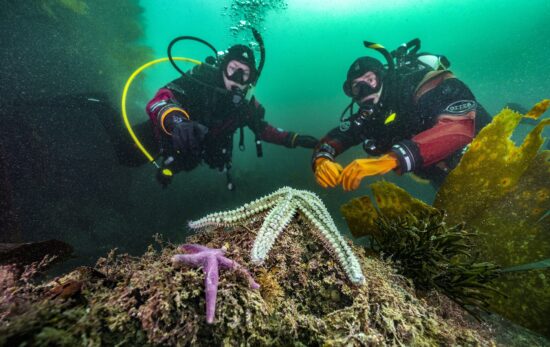More than 75 percent of new divers say they want to improve their scuba skills by taking additional classes, but fewer than 40 percent ever do so. When asked why, many say, “I don’t feel ready.”
Most divers don’t realize the PADI system of diver education is designed to help newly certified divers build confidence and improve their skills. Classes such as the PADI Advanced Open Water Diver course offer new divers the opportunity to explore different types of diving while further developing the scuba skills learned during the PADI Open Water Diver course.
Taking your next scuba certification course couldn’t be easier and in this blog, we look at why, when, and how to get started on leveling up your scuba skills. Let’s start with an overview of the next scuba certification courses available to you after becoming a PADI Open Water Diver.
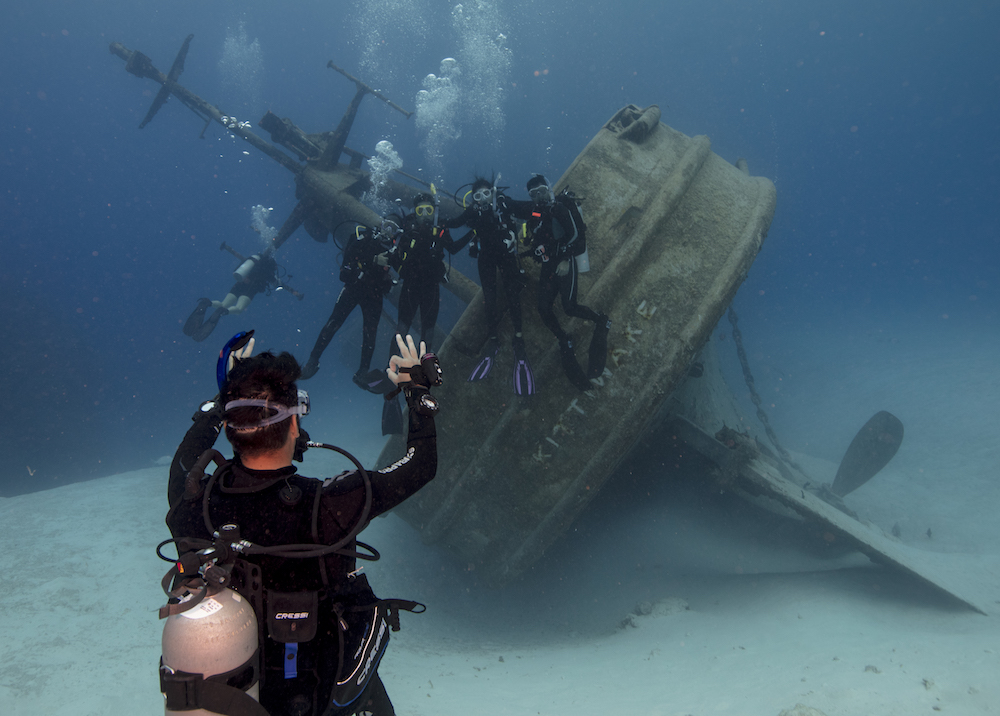
Advanced Open Water Diver
Don’t be intimidated by the name, the PADI Advanced Open Water Diver course is about advancing your skills during the program. You do not need to be an ‘advanced diver’ to take the course, and it’s not about making risky dives. This course is great for building your confidence under the continued guidance of a PADI Instructor. You’ll learn more about how to avoid risks in different situations and under a variety of dive conditions. Ultimately, you’ll become a more aware diver, which will increase your underwater enjoyment level tenfold!
One way to think of Advanced Open Water Diver is as a specialty sampler course. The program includes five Adventure Dives, which allow you to learn more about different types of diving. There are two mandatory dives, namely an underwater navigation dive and a deep dive between 18 meters/60 feet and 30 meters/100 feet. The other three Adventure Dives are of your choosing. If you are not sure which dives to choose, your instructor is there to assist you and can offer great advice – all you need to do is ask!
Some of the most popular Adventure Dives include Night Diving, Peak Performance Buoyancy Diving, Underwater Digital Imaging, Fish Identification, Drift Diving, and Search and Recovery Diving. If there’s a wreck in your area, you can even try your hand at wreck diving!
There’s no exam in the PADI Advanced Open Water Diver course, and you can enroll immediately after completing your PADI Open Water Diver certification.
As an added bonus, your Adventure Dive can count toward the related PADI Specialty Diver course. So, if you discover you like dry suit diving or underwater photography, you’ll already have completed one of the dives required for that certification.
Once you have completed your PADI Advanced Open Water Diver course, you will be certified to dive to a maximum depth of 30 meters/100 feet, and just like your Open Water Diver certification, this is certification never expires.
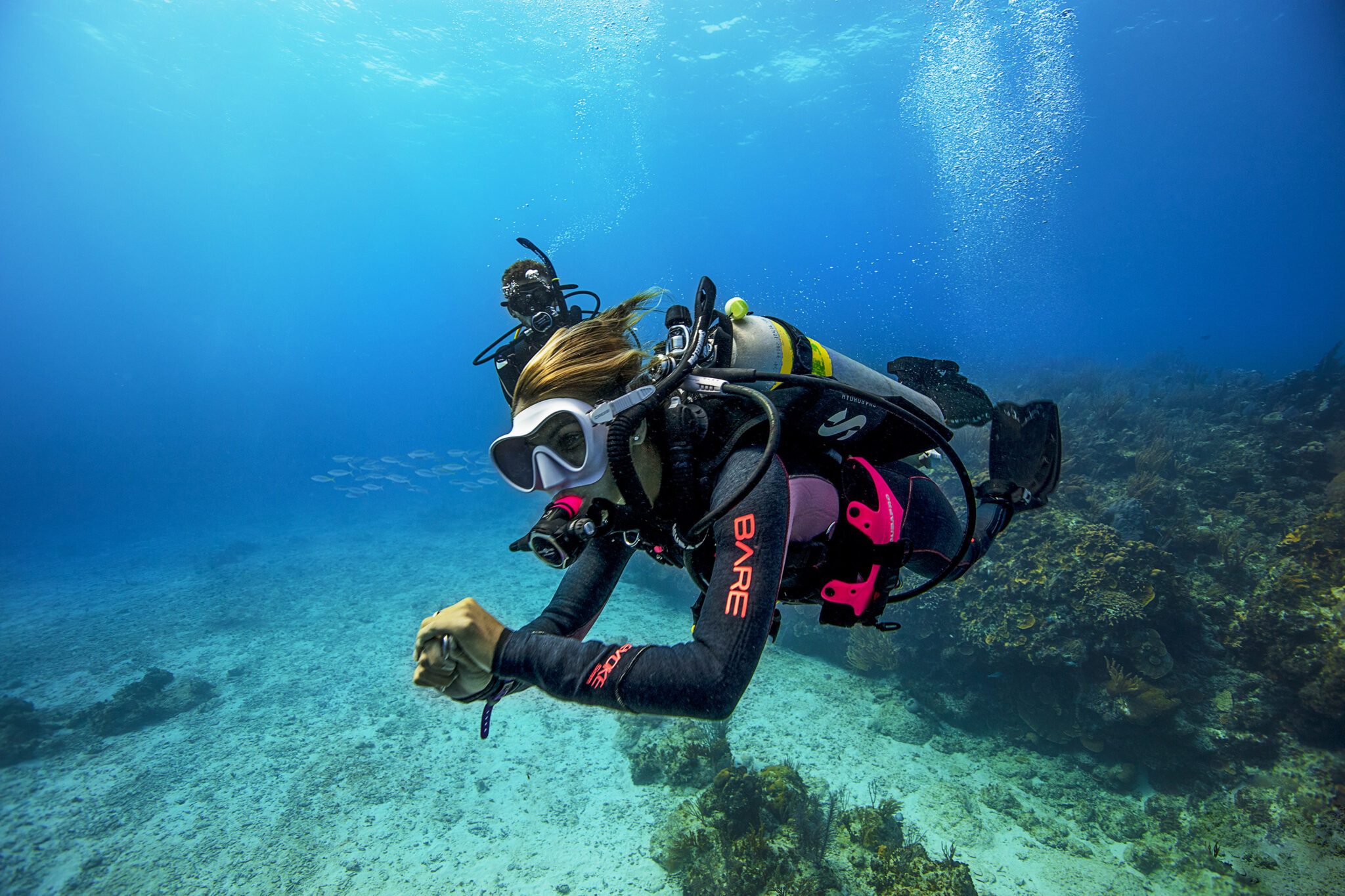
Specialty Diver Courses
If you don’t feel ready to make a deep dive, or you want to focus on one specific skill such as buoyancy or navigation, a PADI Specialty Diver course might be the right choice for you. With a few exceptions, Open Water Divers can enroll in any PADI Specialty Diver course, including PADI’s most popular specialty, Enriched Air Diver. Want to learn more about dive gear? Try the Equipment Specialist course. Feeling self-conscious about your buoyancy skills? The Peak Performance Buoyancy course will have you hovering like a (PADI) Pro.
Rescue Diver
In the PADI Rescue Diver course, you’ll learn how to avoid common diving accidents and practice what to do in an emergency. If you’re not sure if the Rescue Diver course is for you, ask your PADI Dive Center or Resort about observing, or even participating in an upcoming class. As a certified Open Water Diver, you can take part in the Rescue Diver pool sessions, and you’ll soon see why many divers say that the PADI Rescue Diver is their favorite and the most rewarding certification course.
You’ll need to complete the Advanced Open Water Diver course as well as complete an Emergency First Response Primary (CPR) and Secondary Care (First Aid) course before you can become a certified PADI Rescue Diver.
Master Scuba Diver
If you’re already an Advanced Open Water Diver or Rescue Diver, the prestigious Master Scuba Diver™ rating may be closer than you think. Also known as the ‘Black Belt of Scuba Diving Certifications’, the PADI Master Scuba Diver™ rating is available to PADI Rescue Divers who have logged 50 dives and completed five PADI Specialty courses.
PADI Divemaster
For those who have an interest in becoming a PADI Professional and working in the diving industry, the PADI Divemaster qualification is the first professional level to achieve. To embark on PADI Divemaster training, you’ll need to be a PADI Rescue Diver with 40 logged dives, have an up-to-date EFR certification, and be at least 18 years old. Upon completion of the PADI Divemaster course, you’ll need to have at least 60 logged dives for certification.
Need a Refresher?
If it’s been a year or more since your Open Water Diver course and you haven’t dived in the past 12 months, it’s a great idea to brush up on your scuba fundamentals before taking your dive trip. The PADI ReActivate® scuba refresher program allows you to review scuba concepts on your tablet, mobile device, or computer at your convenience, before spending in-water time with a PADI Professional. You can quickly move through concepts you’re familiar with and spend extra time on things you don’t remember as clearly. It’s completely personalized and the perfect way to get ready for your next dive.
To prepare for your PADI ReActivate® program, take a look at our scuba diving refresher checklist to help you get started.
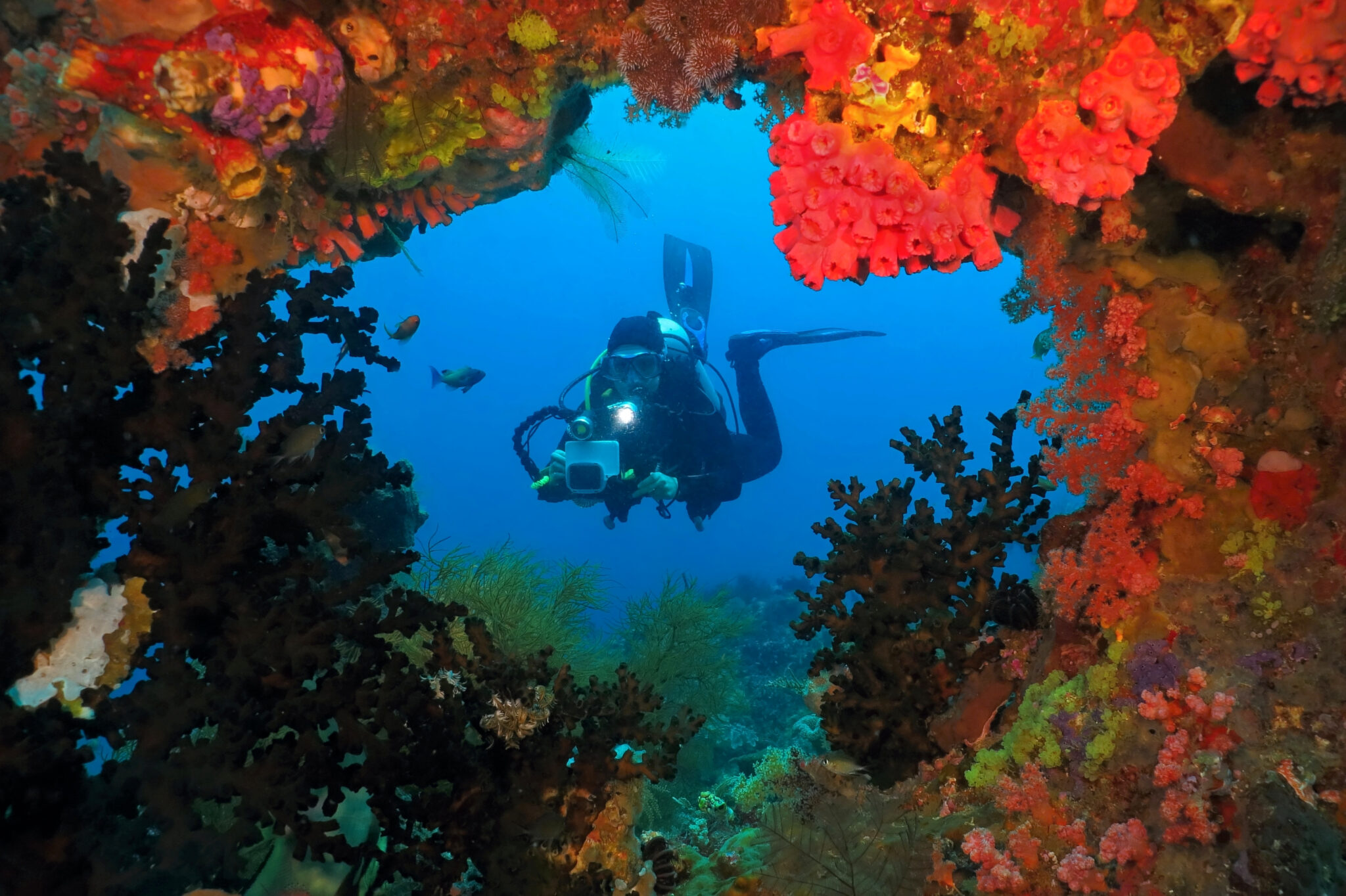
Are You Ready for Your Next Scuba Certification?
Taking the next scuba certification course is the ideal way for new and existing divers to hone their skills while continuing to explore the underwater world. Most classes can be completed within a few days or over two weekends, and you can save time by using PADI eLearning®. If you are ready to get started, contact a PADI Dive Center or Resort to learn more or to enroll.
Remember that PADI Club members get 20% off most continuing education PADI eLearning courses. Consider joining PADI Club before your next certification course. Get more info on this and other benefits here.

